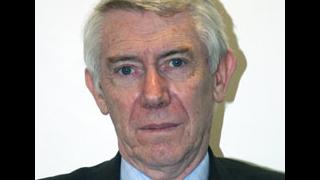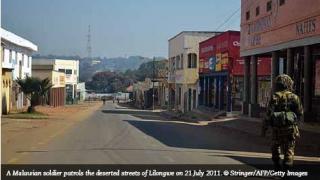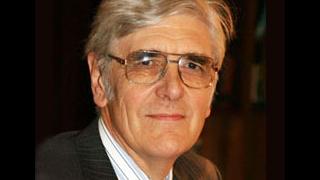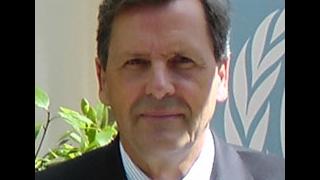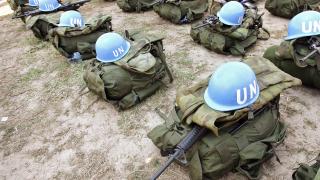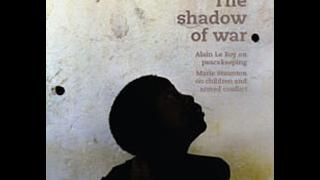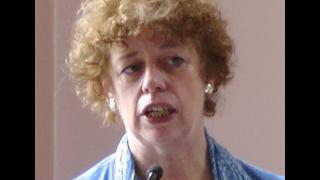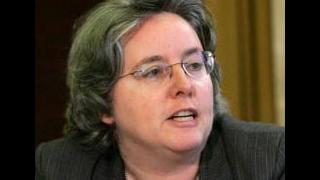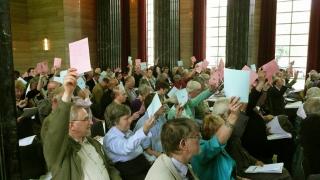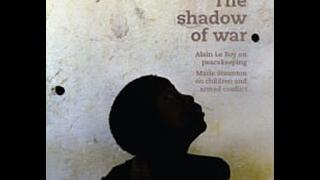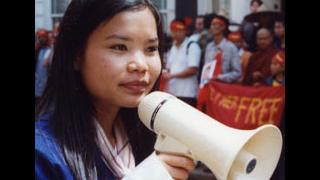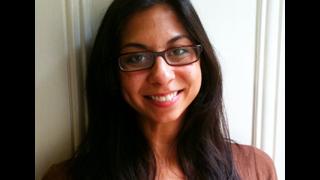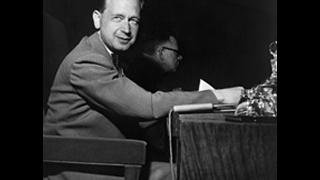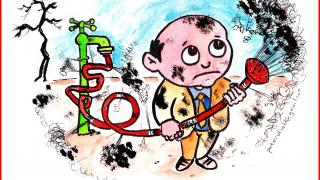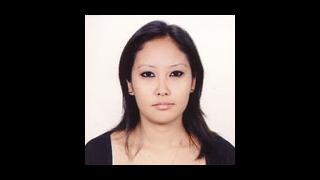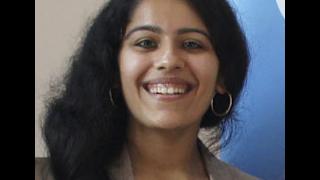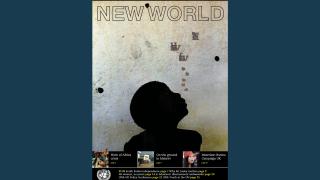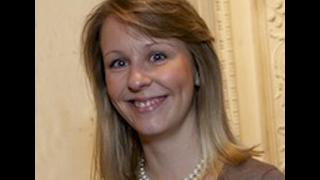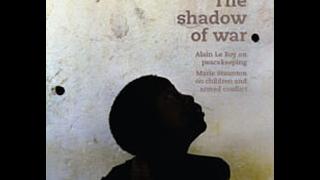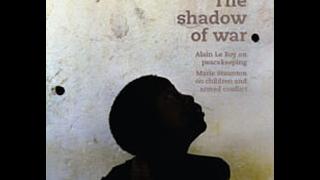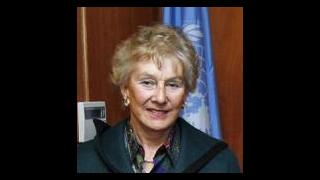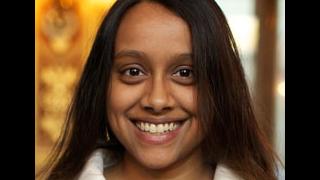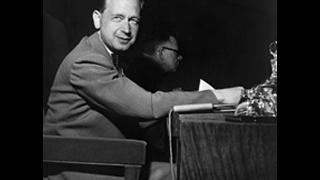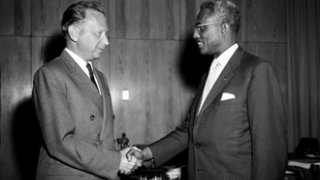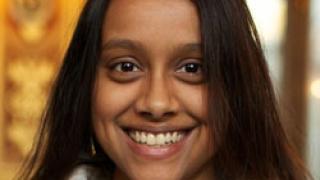
Every day this week, UNA-UK has featured reflections on the life and work of Dag Hammarskjöld, the second Secretary-General of the United Nations, who died in a plane crash on 18 September 1961. 50 years after his death, it is clear that he remains the Sigurd of the UN’s mythology. (Indeed, the circumstances of his death continue to provoke debate.)
Supporters of the Organisation - in particular those who worked with him - speak of Hammarskjöld with that special reverence reserved for public figures who have managed to touch the lives of ordinary people and capture their imagination. Like John F Kennedy and Martin Luther King, Hammarskjöld inspired in others a sense of what could be. And like them, his death provoked a sense of loss for what could have been. Even those who crossed swords with him - and there were many - have since portrayed him with admiration as a worthy adversary. I have yet to meet someone who doesn’t reply ‘Hammarskjöld’ when asked to name the best UN Secretary-General.
I came late to Hammarskjöld, having been born two Secretaries-General after him. Of the SGs within my lifetime, I have no real memories of Javier Pérez de Cuéllar and just one of Boutros Boutros Ghali that I can say for certain has not been coloured by hindsight (I saw him once in Vienna, where I grew up, and said he was a ‘smiler’). I have rather more of Kurt Waldheim, who became President of Austria in the mid-1980s, in particular his struggle to accept the role he played during WWII, which encapsulated the struggle taking place within the nation.
For me, Kofi Annan was the defining Secretary-General. Like the music, films and books that I absorbed on the cusp of adulthood, he became the SG of my generation - the one involved in events that shaped my political consciousness: on the negative side, 9/11 and the wars that followed; on the positive, the Millennium Summit and Make Poverty History campaign. In my mind he was a voice of reason, of morality, of conscience - a ‘force for good’. Even now - having spent years engaging with the events that overshadowed his time at the UN - that teenage image remains strong.
But Annan himself took his cues from Hammarskjöld. In 2001, he delivered the annual Dag Hammarskjöld Lecture in Uppsala and captured, more eloquently than I ever could, the legacy of Hammarskjöld: “His life and death, his words and his actions, have done more to shape public expectations of the office, and indeed of the Organization, than those of any other man or woman in its history. His wisdom and his modesty, his unimpeachable integrity and single-minded devotion to duty, have set a standard for all servants of the international community - and especially, of course, for his successors - which is simply impossible to live up to.”
Annan went on to say that there is no better rule of thumb for a Secretary-General than to ask: how would Hammarskjöld have handled this?
A world away from the 38th floor, I too find myself asking that question, albeit for far less serious matters. It is invariably Hammarskjöld’s quotes that grace UNA-UK publications and certificates of commendation. It is Hammarskjöld who is so often the focus of discussions. It is Hammarskjöld that UNA-UK’s advisors, with their wealth of experience, name as their quintessential Secretary-General.
This is the view of Dame Margaret Anstee, who provides the final piece in this series (to be published on Hammarskjöld’s death anniversary) and who worked under six Secretaries-General in her long career at the United Nations.
For me, Hammarskjöld’s enduring appeal lies in his ability to inspire. He is not the Secretary-General I grew up with. His face is one that I picture in black and white - even though I have seen colour images, my mind involuntarily creates that gulf. Nonetheless, I feel a connection with him, through his words which express something that I feel but have never been able to explain - a sense of duty to those I have never met and who will never know my name.
“I don't know who - or what - put the question, I don't know when it was put. I don't even remember answering. But at some moment I did answer yes to someone - or something - and from that hour I was certain that existence is meaningful and that, therefore, my life, in self-surrender, had a goal.”
Natalie Samarasinghe is the Editor of New World Magazine and UNA-UK's Head of Policy & Communications.

